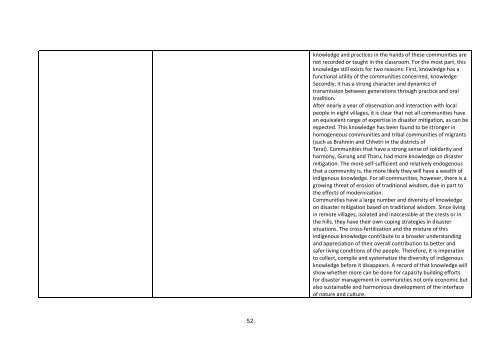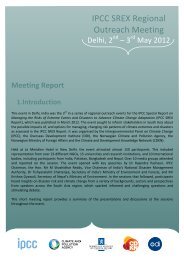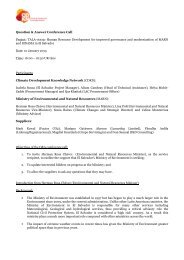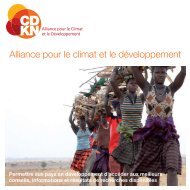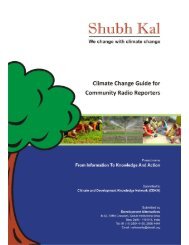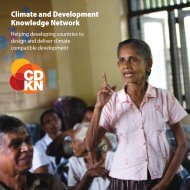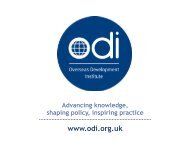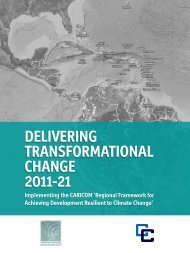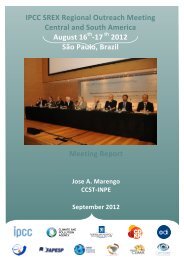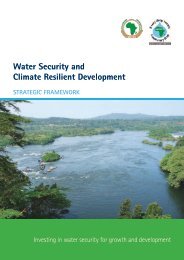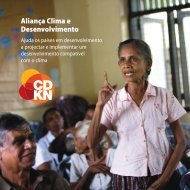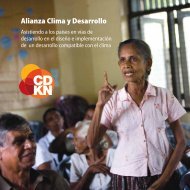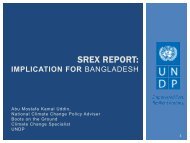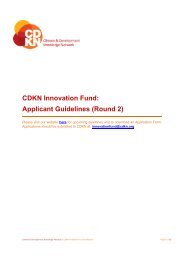Harmonized Perspectives - CDKN Global
Harmonized Perspectives - CDKN Global
Harmonized Perspectives - CDKN Global
- No tags were found...
You also want an ePaper? Increase the reach of your titles
YUMPU automatically turns print PDFs into web optimized ePapers that Google loves.
52knowledge and practices in the hands of these communities arenot recorded or taught in the classroom. For the most part, thisknowledge still exists for two reasons: First, knowledge has afunctional utility of the communities concerned, knowledgeSecondly; it has a strong character and dynamics oftransmission between generations through practice and oraltradition.After nearly a year of observation and interaction with localpeople in eight villages, it is clear that not all communities havean equivalent range of expertise in disaster mitigation, as can beexpected. This knowledge has been found to be stronger inhomogeneous communities and tribal communities of migrants(such as Brahmin and Chhetri in the districts ofTerai). Communities that have a strong sense of solidarity andharmony, Gurung and Tharu, had more knowledge on disastermitigation. The more self-sufficient and relatively endogenousthat a community is, the more likely they will have a wealth ofindigenous knowledge. For all communities, however, there is agrowing threat of erosion of traditional wisdom, due in part tothe effects of modernization.Communities have a large number and diversity of knowledgeon disaster mitigation based on traditional wisdom. Since livingin remote villages, isolated and inaccessible at the crests or inthe hills, they have their own coping strategies in disastersituations. The cross-fertilization and the mixture of thisindigenous knowledge contribute to a broader understandingand appreciation of their overall contribution to better andsafer living conditions of the people. Therefore, it is imperativeto collect, compile and systematize the diversity of indigenousknowledge before it disappears. A record of that knowledge willshow whether more can be done for capacity building effortsfor disaster management in communities not only economic butalso sustainable and harmonious development of the interfaceof nature and culture.


